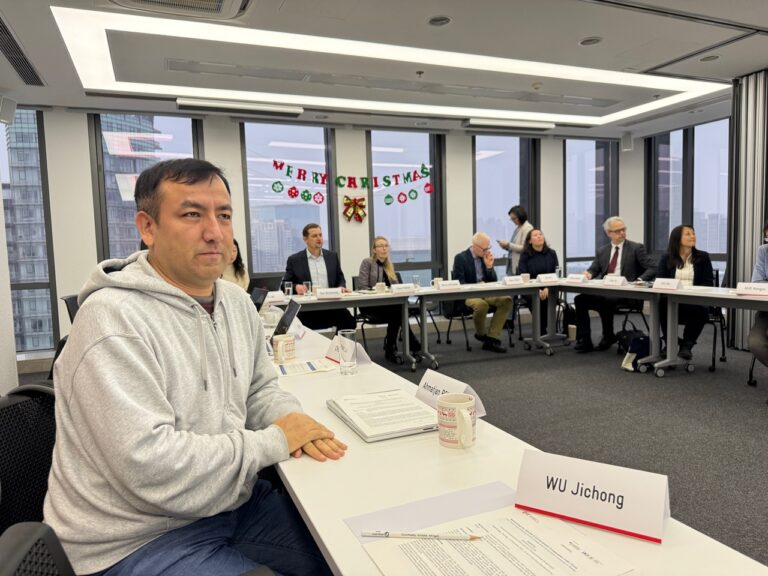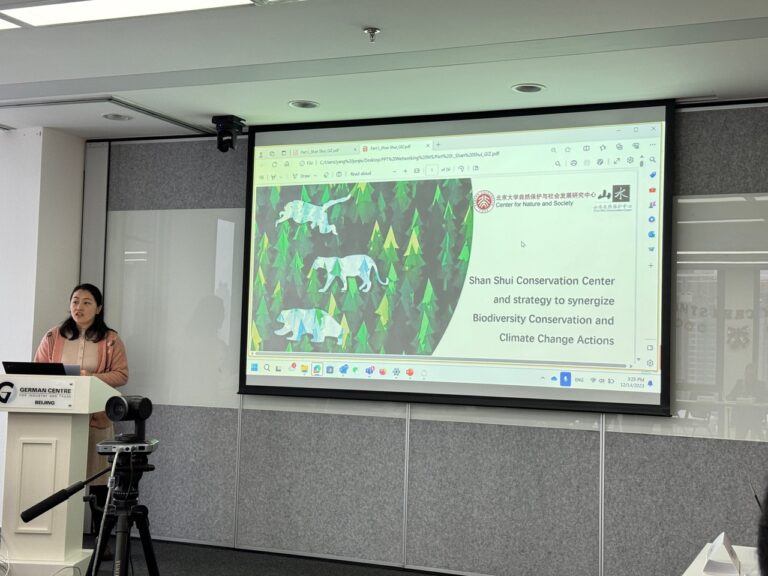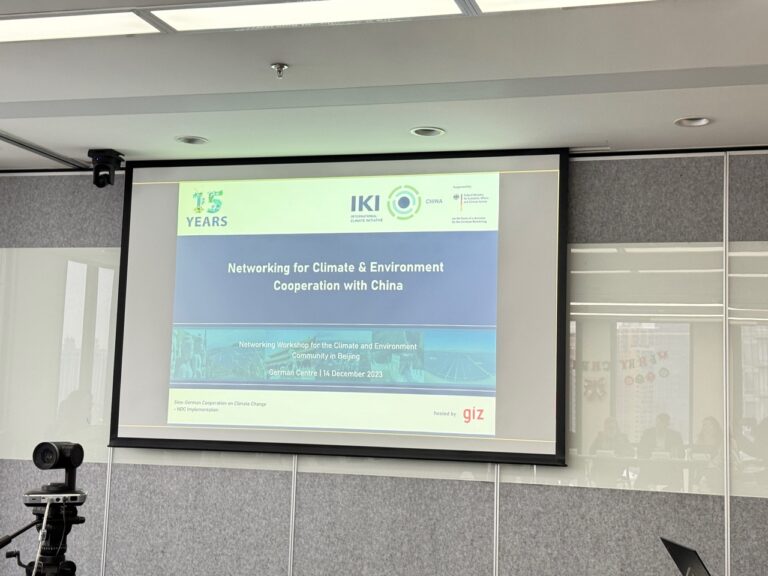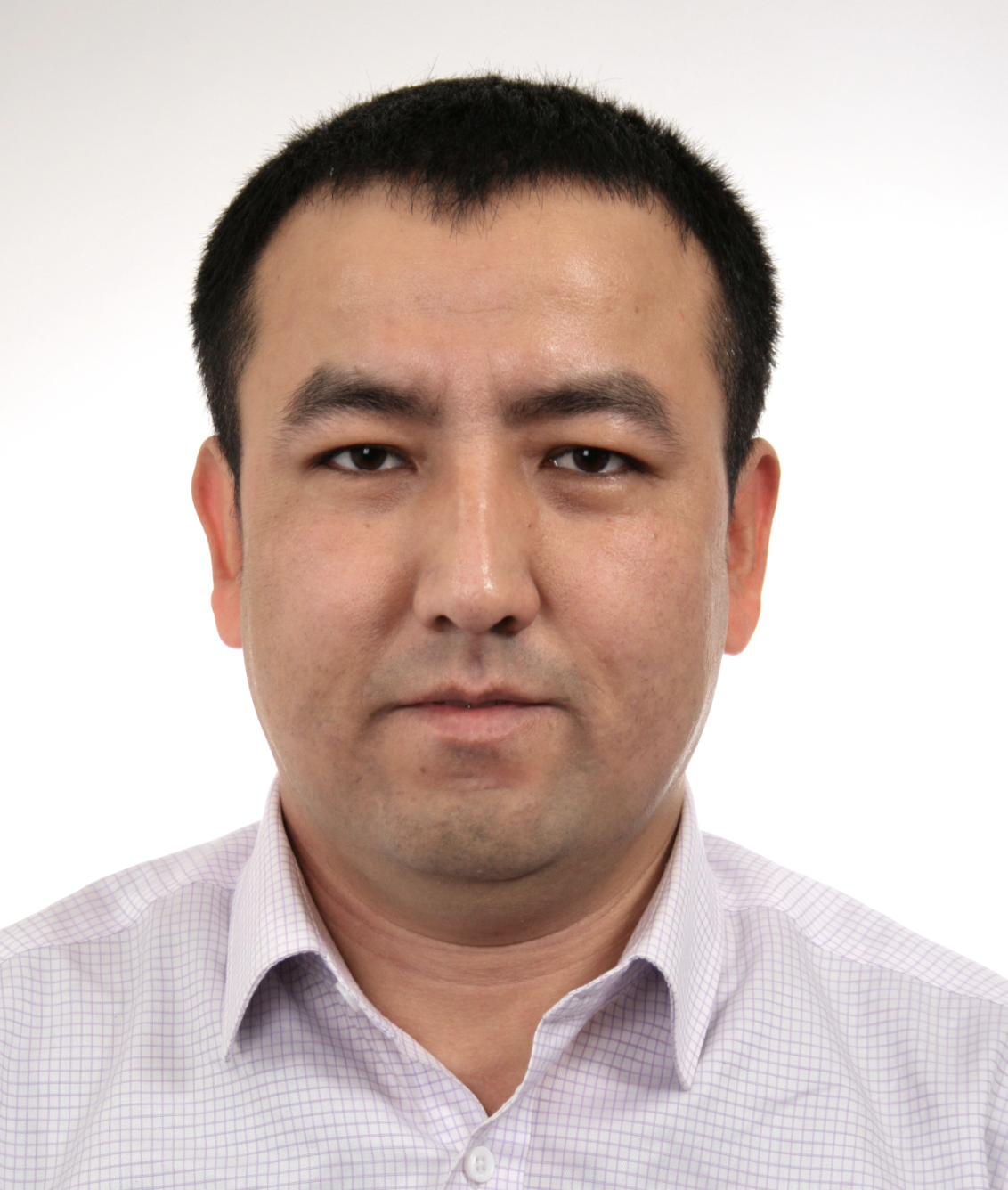On 14 December, DCZ expert Ahmatjan Rouzi attended the Networking for Climate & Environment Cooperation with China event in Beijing. Organized by the Deutsche Gesellschaft für Internationale Zusammenarbeit (GIZ), the event came in the wake of the International Climate Initiative (ICI) of the German government and COP28 in Dubai. The event started with opening remarks by Paul Recknagel, project director for Sino-German cooperation on climate change at GIZ, and Elena Finckh, Energy and Climate Officer at the German Embassy in China.



In a talk entitled “State of climate action 2023”, Zhe LIU from the World Resources Institute (WRI) China emphasized the need for achieving transformational change in eight major sectors such as power, buildings, industry, transport, forest & land, food & agriculture, technological carbon removal, and finance for climate action. Only one out of 42 indicators for the 2030 climate targets is on track, namely the share of electrical vehicle sales.
Michiel Schaffer from Climate Analytics highlighted the main takeaways from COP28, emphasizing the importance of keeping temperature rise within 1.5 C. He also mentioned fast-tracking energy transition and the World Bank’s role in climate financing raised at COP28. Ahmatjan Rouzi engaged in discussions on the methane pledge and the Chinese methane action plan with other participants. Niels Thevs from GIZ discussed how nature-based solutions such as wetland and peatland protection and restoration could assist in climate mitigation efforts. He mentioned the work of German NGOs NABU and BUND and University of Greifswald’s mire center on peatland restoration and research.
Cheng CHEN from Shanshui Conservation Center introduced their community-based conservation work in Qinghai, Western China. The Chinese participants discussed how to balance development and nature conservation efforts, while others raised the importance of involving broad civil participation and NGOs in these endeavors. During the networking session, Dr. Rouzi introduced the DCZ portfolio with regards to climate issues, including the DCZ’s collaborative work with the Chinese Academy of Agricultural Sciences (CAAS) on biogas and methane emissions from agriculture, animal manure utilization, and sustainable carbon farming.
During the networking session, all the participant introduced themselves and their institution’s portfolio work on climate such as green finance, nature-based solutions, energy transition, transport sector, and sustainable urban development. Apart from GIZ, experts from ClimateWorks foundation, Shanshui, Ellen MacArthur Foundation, NewClimate Institute, Friends of Nature, World Bank, OECD, World Resources Institute, UNPD and the World Economic Forum were in attendance to represent their respective organizations. All in all, the event brought international experts and consultants who are working on climate and environmental issues in Beijing to deepen exchanges and collaborations.




